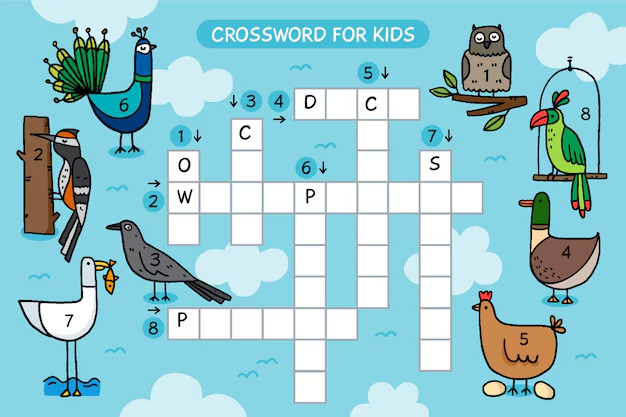Scouts play a crucial role in many fields, particularly in sports, where identifying talent is paramount to building winning teams. In this article, we focus on the concept of a “mission for a scout for short” – a term that often refers to a scout being tasked with evaluating specific players or talent over a shorter period, such as during a tournament, practice session, or even a single match. Scouts have to act quickly and decisively, gathering valuable insights and making recommendations that can impact team decisions.
Whether in football, basketball, baseball, or any other sport, the mission of a scout often demands a high level of precision and expertise. Let’s explore what this mission entails, the skills required, and how scouts influence team dynamics and decisions.
The Role of a Scout: Understanding the Basics
Before diving into the specifics of a scout’s mission, it’s important to understand the fundamental role of a scout in sports. A scout is typically responsible for identifying, assessing, and evaluating players or talent. They attend games, watch footage, analyze statistics, and provide feedback to coaches, team managers, and even management on players’ skills, potential, and suitability for the team.
The primary goal of a scout is to find the best talent—whether it’s uncovering emerging stars or identifying players who can immediately contribute to a team’s success. In the context of a “mission for a scout for short,” this could mean identifying a potential signing or recruit in a short window of time, such as a weekend tournament or even a single match.
What Is a ‘Mission for a Scout for Short’?
A “mission for a scout for short” refers to the specific task a scout is given to evaluate players or talent within a limited timeframe. The scout’s assignment might be to assess one player, a group of players, or a team’s performance during a short series of events or even a single game.
In many cases, this type of mission occurs when teams need quick assessments of potential recruits who are participating in specific events like tryouts, scouting combines, or even high-stakes, time-sensitive matches. The scout’s ability to gather critical data and evaluate it under pressure is key to the success of this mission.
Key Skills Required for Scouts on Short-Term Missions
When tasked with a short-term scouting mission, scouts must be adept in various areas, combining traditional scouting skills with the ability to work under tight deadlines. Here are a few of the key skills that come into play:
1. Quick Analysis and Decision-Making
A scout working under short timelines must be able to evaluate players swiftly and accurately. This includes identifying key skills, strengths, and weaknesses almost immediately after observing a player or team in action.
2. Detailed Knowledge of the Sport
Scouts must have an in-depth understanding of the game, allowing them to recognize talent from a technical and strategic standpoint. Whether it’s reading the game, assessing fitness levels, or identifying specific play styles, a scout’s expertise allows them to make rapid, informed decisions.
3. Observation and Recording
Scouts must be able to take detailed notes and track multiple players or teams quickly. During a “mission for a scout for short,” this might include tracking performance metrics, such as speed, agility, shooting accuracy, or positioning, depending on the sport. A well-organized scouting report is critical to making post-event decisions.
4. Communication and Reporting
Once the scout has completed their observations, they need to effectively communicate their findings. A short scouting mission often means the feedback must be concise, precise, and immediately actionable for the coaching staff or management team. This requires clear reporting, often including a written scouting report or a debriefing with the team decision-makers.
Impact of Scouts on Team Building
Scouts are often the unsung heroes of team success. While players and coaches take the spotlight, scouts work behind the scenes to ensure that teams have access to the best talent available. In the case of short-term scouting missions, the impact can be immediate, with scouts playing a pivotal role in shortlisting players for tryouts, evaluations, or even draft picks.
For example, if a scout is tasked with assessing a player during a one-weekend tournament, their recommendations could result in a player being brought in for further evaluation or even being offered a contract. This decision, based on the scout’s expertise, can be the difference between a team’s success or failure in the future.
Challenges of Short-Term Scouting Missions
While scouting over a longer period allows for a deeper understanding of a player’s development, short-term missions come with their own set of challenges. Some of the difficulties scouts face include:
1. Limited Sample Size
Scouts working on short-term missions only have a brief window to observe a player’s performance, which means their analysis might be based on a small sample size. This can make it harder to judge consistency and long-term potential.
2. Pressure to Deliver Quick Results
With limited time, scouts are under pressure to quickly gather and analyze data to make recommendations. They must act decisively, even if they don’t have as much time to gather comprehensive information.
3. Evaluating Under Stressful Conditions
Sometimes, scouts must evaluate players under highly competitive, fast-paced conditions. In tournaments or high-stakes games, players may perform under stress, which could affect their performance. A scout must discern whether a player’s abilities remain consistent under pressure or if they falter.
Conclusion: The Vital Role of Scouts in Sports
The “mission for a scout for short” may be an intense, high-pressure responsibility, but it is an integral part of the decision-making process in the world of sports. Whether tasked with evaluating a player in a weekend competition or reviewing a player’s performance in a single match, the scout’s ability to gather crucial insights quickly is essential.
Scouts’ expertise, observation skills, and quick thinking can significantly shape a team’s future, whether by finding a hidden gem or preventing a costly recruitment mistake. Their efforts, often done out of the public eye, play a major role in ensuring that teams have the talent needed to compete and win. For any team, the scout’s mission—no matter how short—can lead to long-lasting results.











